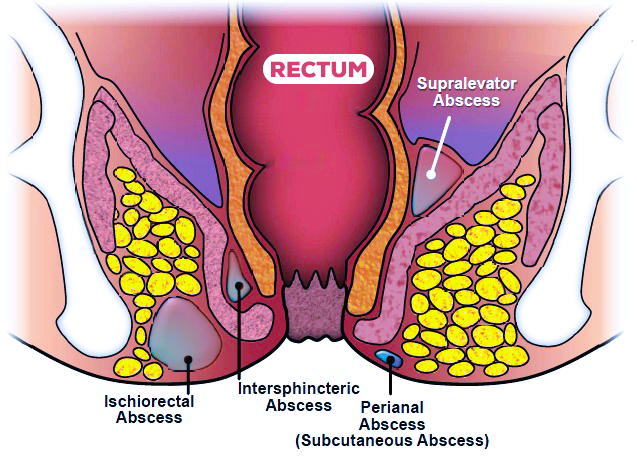Perianal Abscesses: Causes, Symptoms and Precautions
Explore the causes, symptoms, and precautions of Perianal Abscesses. Learn how to identify, prevent, and manage this painful condition effectively. #PerianalAbscesses


Understanding Perianal Abscesses
A perianal abscess is a painful condition characterized by a collection of pus in the tissue surrounding the anus. It occurs when bacteria enter the anal glands and cause an infection. Perianal abscesses can be quite uncomfortable and may require medical intervention for proper treatment.
Causes of Perianal Abscesses
Perianal abscesses are commonly caused by an infection that occurs when bacteria from the digestive tract enter the anal glands. The most common bacteria responsible for these infections are Escherichia coli and Staphylococcus aureus. Other factors that can contribute to the development of perianal abscesses include:
Crohn's disease or other inflammatory bowel diseases
Diabetes
Sexually transmitted infections
Compromised immune system
Anal fissures or trauma to the anal area
Symptoms of Perianal Abscesses
The symptoms of perianal abscesses may vary depending on the severity of the infection. Common symptoms include:
Pain and tenderness in the anal area
Swelling and redness around the anus
Fever
Difficulty sitting or moving
Pus or discharge from the abscess
Treatment for Perianal Abscesses
Perianal abscesses typically require medical treatment to prevent complications and promote healing. The primary treatment option is an incision and drainage procedure, which involves making a small cut to drain the pus from the abscess. This procedure is usually performed under local anesthesia.
In addition to incision and drainage, your doctor may prescribe antibiotics to help clear the infection and prevent it from spreading. Pain medications may also be recommended to manage discomfort during the healing process.
Precautions for Perianal Abscesses
To reduce the risk of developing perianal abscesses or prevent recurrence, it is important to take certain precautions:
Maintain good hygiene by regularly cleaning the anal area with mild soap and warm water.
Avoid excessive straining during bowel movements, as it can increase pressure on the anal glands.
Include high-fiber foods in your diet to promote regular bowel movements and prevent constipation.
Avoid anal intercourse, as it can increase the risk of bacterial infections.
Seek prompt medical attention if you notice any symptoms of perianal abscesses to prevent complications.
Perianal abscesses can be a painful and uncomfortable condition, but with proper medical treatment and precautions, they can be effectively managed. If you suspect you have a perianal abscess, it is important to consult a healthcare professional for an accurate diagnosis and appropriate treatment.
